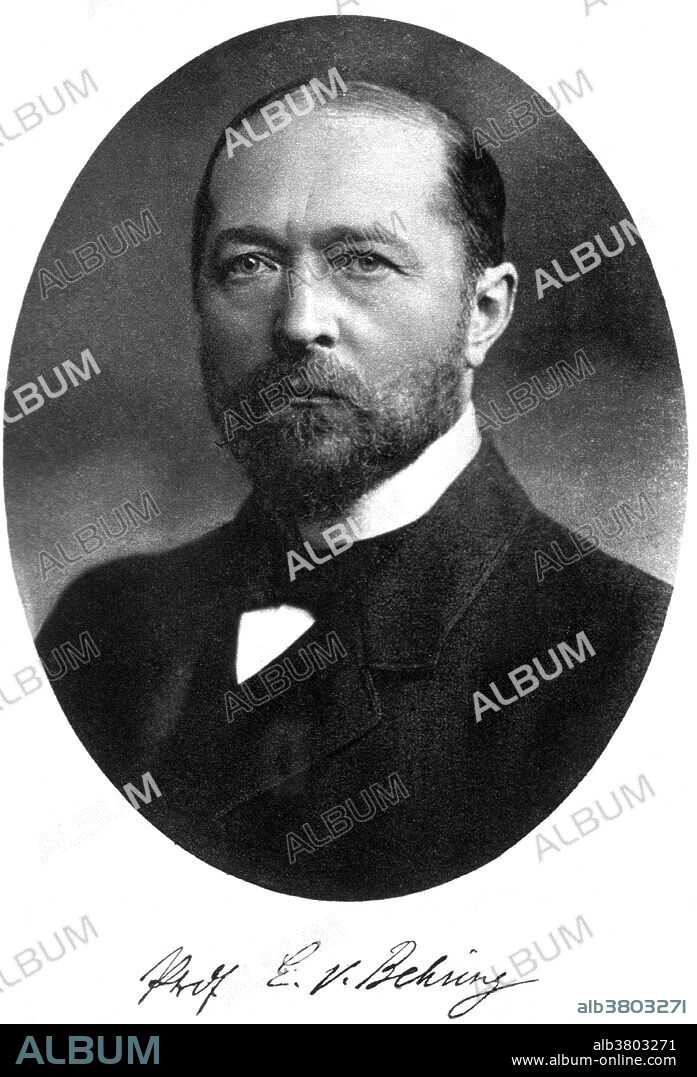alb3803271
Emil von Behring, German Immunologist

|
Zu einem anderen Lightbox hinzufügen |
|
Zu einem anderen Lightbox hinzufügen |



Haben Sie bereits ein Konto? Anmelden
Sie haben kein Konto? Registrieren
Dieses Bild kaufen

Titel:
Emil von Behring, German Immunologist
Untertitel:
Siehe automatische Übersetzung
Emil Adolf von Behring (March 15, 1854 - March 31, 1917) was a German immunologist and physiologist. He was a military doctor and then became Professor of Hygienics within the Faculty of Medicine at the University of Marburg, a position he would hold for the rest of his life. He was the discoverer of diphtheria antitoxin in 1890 and attained a great reputation by that means and by his contributions to the study of immunity. He demonstrated that the injection of toxins was able to be transmitted to another animal by injections of a treated animal's blood serum and used as a means of effecting a cure. Von Behring is believed to have cheated Paul Ehrlich out of recognition and financial reward in relation to collaborative research in diphtheria. The two men developed a diphtheria serum by repeatedly injecting the deadly toxin into a horse. The serum was used effectively during an epidemic in Germany. A chemical company preparing to undertake commercial production and marketing of the diphtheria serum offered a contract to both men, but von Behring maneuvered a way to claim all the considerable financial rewards for himself. To add insult to injury, only von Behring received the first Nobel Prize in Medicine, in 1901, for his contributions. He died in 1917 at the age of 63.
Bildnachweis:
Album / NLM/Science Source
Freigaben (Releases):
Model: Nein - Eigentum: Nein
Rechtefragen?
Rechtefragen?
Bildgröße:
3300 x 4846 px | 45.8 MB
Druckgröße:
27.9 x 41.0 cm | 11.0 x 16.2 in (300 dpi)
Schlüsselwörter:
BERÜHMT • BERÜHMTE PERSÖNLICHKEIT • DEUTSCH • EUROPAEER (F M) • EUROPAEER • EUROPÄER (F M) • EUROPÄER • EUROPÄISCH • IMMUNOLOGIE • MANN • NATURWISSENSCHAFTLER • NOBEL • NOBELPREIS • NOBELPREISTRAEGER • NOBELPREISTRÄGER • NOTABEL • PERSON • PERSöNLICHKEITEN • PERSÖNLICHKEITEN • PHYSIOLOGIE • PORTRAIT • PROMINENZ • WISSENSCHAFTLER • WISSENSCHAFTLICH
 Pinterest
Pinterest Twitter
Twitter Facebook
Facebook Link kopieren
Link kopieren Email
Email
